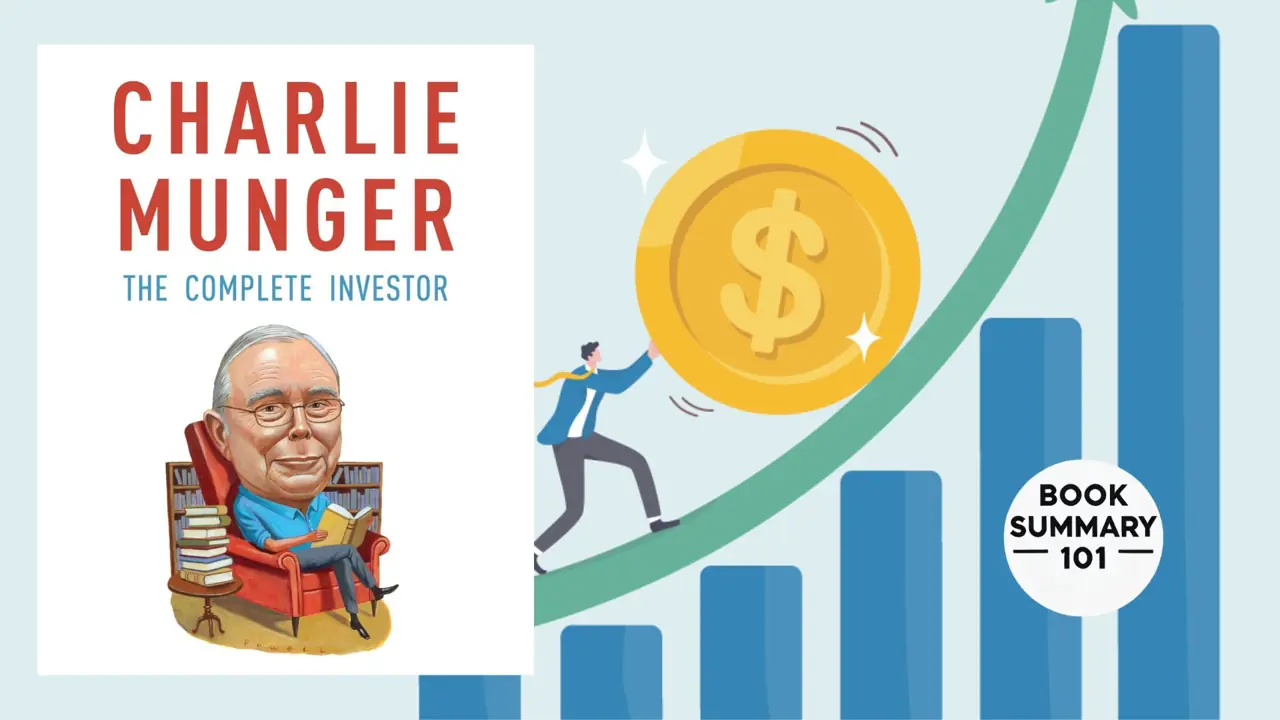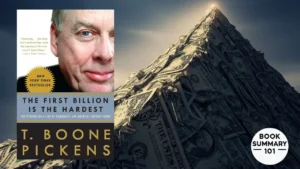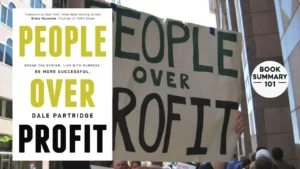If you’ve ever found yourself wondering how to think like a financial genius—or better yet, how to simplify investing while making better life decisions—Charlie Munger – The Complete Investor by Tren Griffin is a must-read. This book unpacks the brilliance of Charlie Munger, the right-hand man to Warren Buffett, and explores how his timeless wisdom can shape your thinking. Let’s dive in!
Why Read This Book?
Imagine having a mentor who’s mastered the art of investing, decision-making, and critical thinking—and who distills it all into practical advice. That’s essentially what Tren Griffin offers in this book. Munger isn’t just about stock tips; he’s about fostering a framework to help you tackle uncertainty and make sound choices in every aspect of life.
This isn’t your typical finance book packed with jargon and numbers. It’s about adopting a latticework of mental models, sharpening your ability to think independently, and aligning your decisions with long-term success. Plus, Griffin’s conversational writing style makes complex ideas easy to digest.
The book on amazon 👉 Charlie Munger – The Complete Investor 📚
Actionable Insights – How to Think (and Win) Like Munger
Let’s take a deep dive into the core principles of Charlie Munger: The Complete Investor. These takeaways aren’t just ideas; they’re actionable strategies to help you make better decisions in life and investing. I’ve added more detail and examples to make each point as engaging and relatable as possible.
Mental Models Are Your Superpower
Charlie Munger’s secret weapon is his reliance on “mental models,” which are essentially tools for understanding and navigating the world. He believes that by studying the big ideas across various disciplines—such as psychology, mathematics, economics, and biology—you can create a latticework of knowledge to make better decisions.
Munger’s approach is simple: don’t just specialize in one area. Instead, gather insights from many fields and apply them together. This way, you gain a more holistic perspective, which helps you solve problems more effectively.
Real-Life Example:
Let’s say you’re considering investing in a tech startup. The product looks great, and the hype is unreal. But pause for a moment. Ask yourself: “Do I really understand this business?” Here, Munger’s “circle of competence” model comes into play. He advises sticking to areas you deeply understand.
If tech isn’t your strong suit, you could be setting yourself up for failure. Munger’s wisdom suggests passing on the opportunity and focusing instead on industries or companies where you have expertise or a genuine understanding. This approach not only reduces risk but also maximizes your chances of success.
Avoiding Bias Is Half the Battle
If you’ve ever made a decision you later regretted, chances are some form of bias was at play. Munger is keenly aware of how human nature often works against us, and he stresses the importance of identifying and mitigating these cognitive traps. Two of the most common culprits?
- Confirmation Bias: The tendency to seek out information that supports your pre-existing beliefs.
- Loss Aversion: Feeling the pain of a loss more strongly than the pleasure of an equivalent gain.
Example:
Imagine you own shares in a company that’s been steadily losing value. Your gut tells you to hold onto it, thinking, What if it bounces back? But this is loss aversion talking. Instead of rationally evaluating the situation, you cling to the hope of avoiding regret.
Munger’s advice? Face reality head-on. Analyze the stock objectively: Is there a solid reason to believe its value will recover? If not, sell it and redirect your resources into a better opportunity. By recognizing these biases, you can train yourself to think more rationally and make decisions based on logic rather than emotion.
Focus on Compounding
If there’s one word that sums up Charlie Munger’s philosophy, it’s compounding. This isn’t just about money—it’s about the idea that small, consistent actions lead to extraordinary results over time.
Munger often talks about the exponential power of compounding when it comes to investing, knowledge, and even relationships. The key is consistency. Instead of chasing quick wins, focus on incremental growth.
Example:
Munger attributes much of his success to being a lifelong learner. He reads voraciously and constantly seeks to expand his understanding of the world. Imagine if you committed to reading just 30 minutes a day on topics that matter to you. Over a year, that’s over 180 hours of learning. Imagine the cumulative effect over a decade!
The same principle applies to financial investments. Instead of hunting for stocks that promise overnight riches, invest in solid, reliable companies. Let your returns snowball over time. This patient, methodical approach is the hallmark of Munger’s success.
The Importance of Patience
In our fast-paced world, patience feels like an outdated virtue. But for Charlie Munger, it’s a cornerstone of success. He likens decision-making to waiting for the perfect pitch in baseball. Swing only when the conditions are just right, and don’t be afraid to let opportunities pass if they don’t meet your criteria.
This idea of patience isn’t about inaction; it’s about being deliberate and disciplined. Rushing into decisions—whether in investing, business, or personal life—often leads to regret.
Example:
Imagine you’re in the market for a new home. The first property you see looks decent, but something doesn’t feel quite right. Rather than rushing in, Munger’s philosophy would encourage you to step back, do your homework, and wait.
Look at market trends, analyze neighborhoods, and compare properties until you find one that’s truly worth the investment. Yes, this approach takes time, but it’s better than buyer’s remorse down the road.
In investing, Munger’s patience shines even brighter. He believes in sitting on cash until a golden opportunity arises—one that aligns with his principles of value and margin of safety. Acting impulsively is the enemy of long-term success.
The Bigger Picture
At the heart of all these lessons is one key message: Success doesn’t come from quick fixes or shortcuts. It comes from building a foundation of knowledge, thinking critically, and staying disciplined.
Charlie Munger isn’t just a brilliant investor; he’s a philosopher of practical wisdom. His ideas challenge us to think differently, act patiently, and approach life with a long-term perspective.
Now that you’ve explored these principles, which one resonates with you the most? Let me know in the comments, and let’s keep the conversation going!
Why Charlie Munger’s Wisdom Matters
In a world overwhelmed by information, Munger’s framework teaches us to think clearly, filter out noise, and focus on what truly matters. Whether you’re an aspiring investor, an entrepreneur, or someone just looking to improve decision-making, his lessons transcend finance—they’re life strategies.
Join the Conversation!
What’s your favorite piece of wisdom from Charlie Munger? Have you read The Complete Investor or applied mental models in your own life? Share your thoughts in the comments—I’d love to hear how you’re using these principles to level up!
Also, if you found this summary helpful, don’t forget to share it with your friends. After all, good ideas are meant to compound too.
Until next time, keep thinking big!
The book on amazon 👉 Charlie Munger – The Complete Investor 📚
5 quotes from Charlie Munger: The Complete Investor by Tren Griffin
1.“Spend each day trying to be a little wiser than you were when you woke up.”
👉 This captures Munger’s lifelong obsession with continuous learning and self-improvement. Small daily gains compound into massive success over time.
2.“The wise man looks for what he can learn from everyone.”
👉 Munger reminds us that valuable lessons can come from anywhere — if you stay humble and open-minded, you’re always growing.
3.“It is remarkable how much long-term advantage people like us have gotten by trying to be consistently not stupid, instead of trying to be very intelligent.”
👉 One of Munger’s golden rules: Avoiding mistakes and dumb decisions often matters more than trying to outsmart everyone.
4.“Invert, always invert: Turn a situation or problem upside down. Look at it backward.”
👉 Munger loves the power of inversion — solving problems by first thinking about what not to do, or imagining worst-case scenarios to avoid them.
5.“The best thing a human being can do is to help another human being know more.”
👉 At the core of Munger’s philosophy is the idea that knowledge shared is knowledge amplified. Building each other up is a lasting kind of success.



